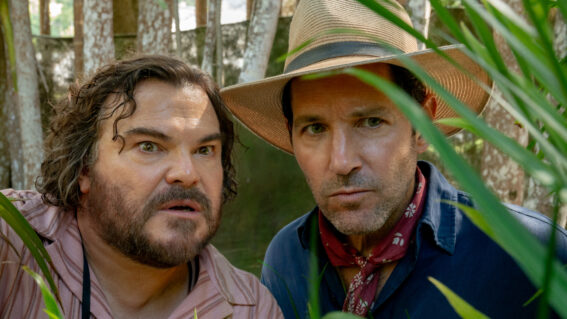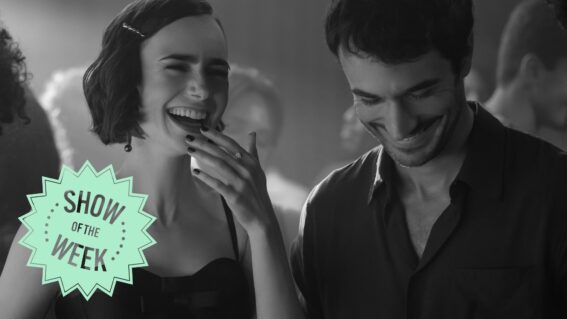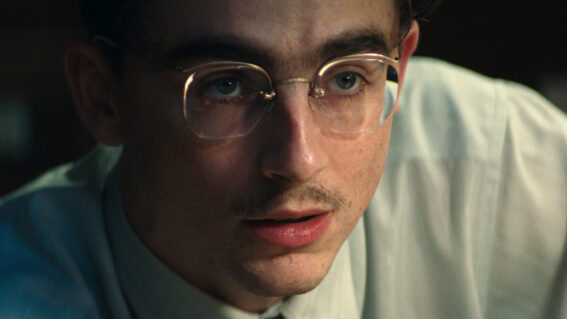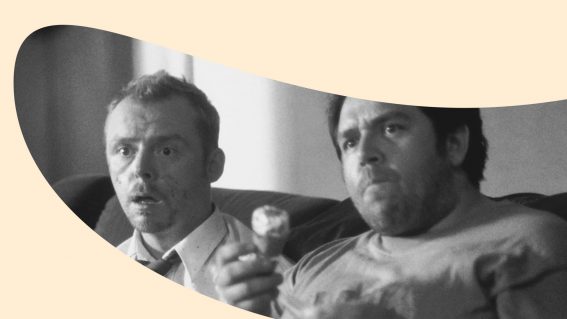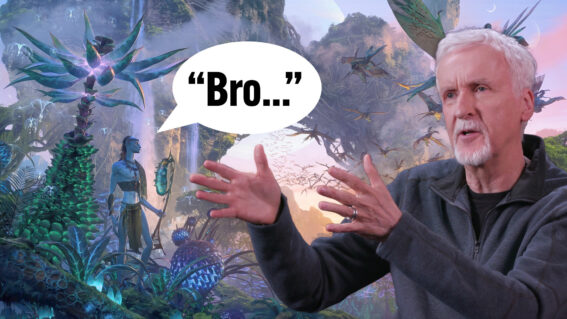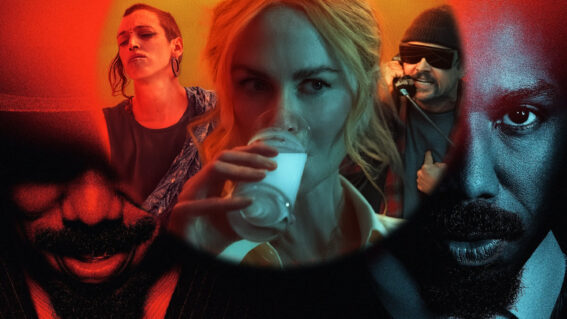Workplace comedy Loot has found its formula for eat-the-rich laughs
Season two hones in on Maya Rudolph’s ability to look extraordinarily glamorous while making an utter fool of herself.
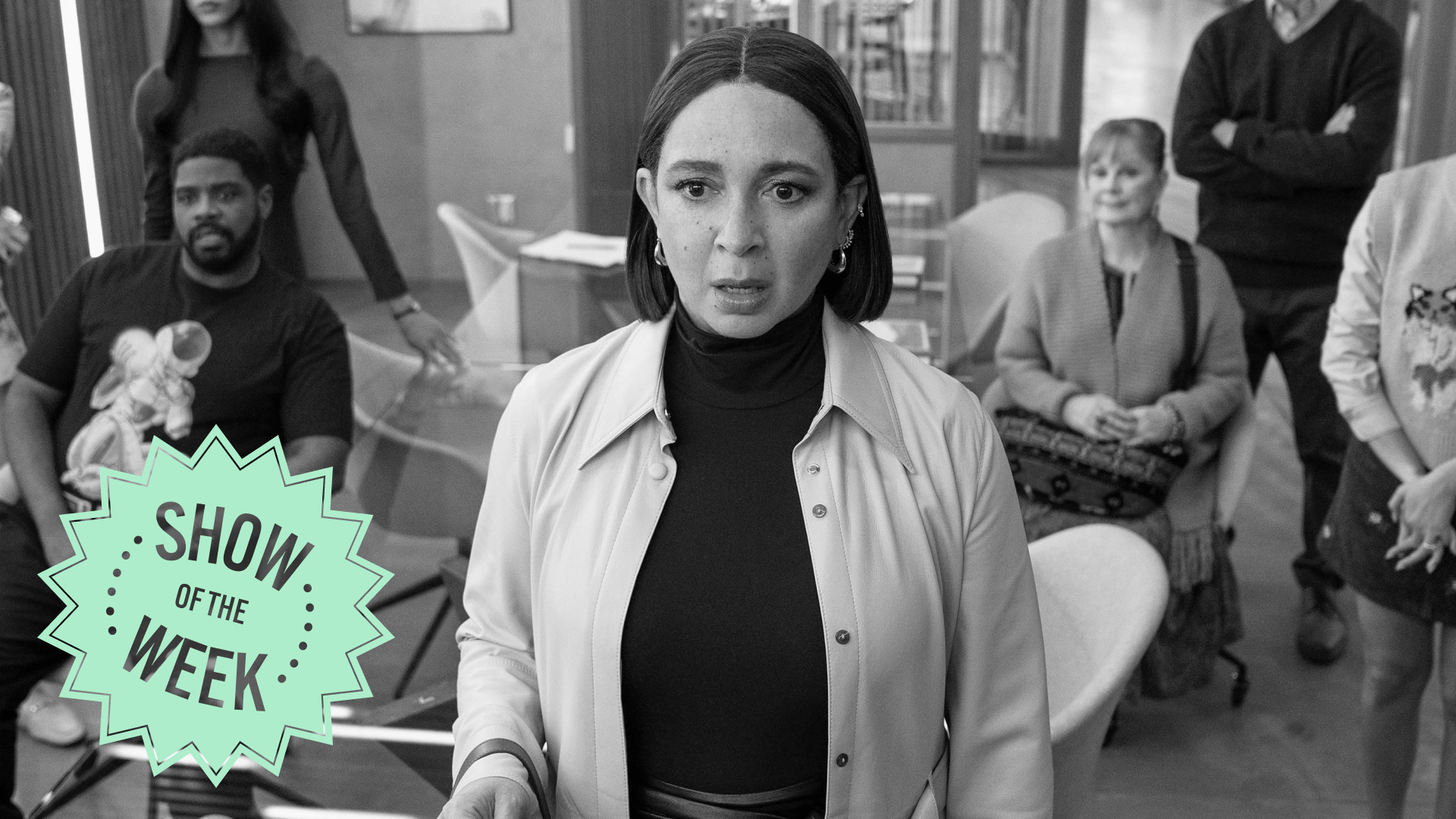
Clarisse Loughrey’s Show of the Week column, published every Friday, spotlights a new show to watch or skip. This week: the return of Maya Rudolph’s clueless billionaire in season two of Apple TV+ comedy Loot.
Loot isn’t the show to go looking for “good politics”. But, to be presented with a cosy workplace sitcom, a clear intended successor to Parks and Recreation and The Office, premised entirely around the line “billionaires shouldn’t exist”? On Apple TV+, of all places? Clearly, something’s shifted in the culture. Loot may not be radical, but it is topical. And, in season two, the Maya Rudolph-fronted series has really hit its groove, conjuring up a wilfully naive, hopeless fantasy in which the 1% might actually possess a soul.
Molly Wells (Maya Rudolph) has separated from her tech guru ex, John (Adam Scott), and attempted to find new meaning through the charitable foundation she didn’t know existed but is somehow under her name, headed up by the clear-headed but mildly obsessive Sofia (Michaela Jaé Rodriguez). She ended season one with the declaration that she would, piece by piece, dismantle her entire fortune.
And, while each season is only ten episodes, and there’s a stronger through line here than in most traditional sitcoms, a strong foundation has been laid for what could be a very long-running series—if actually given half the chance. A format has been established: Molly tries to help. Her blind privilege causes a mess. Sofia and the rest of her foundation scramble to save the day.
Its cast is a collection of dependable, but loveable archetypes. Molly’s assistant, Nicholas (Joel Kim Booster) is hot, bitchy, and superficial. Howard (Ron Funches), the foundation’s tech guy, has a collection of rare anime T-shirts. Ainsley (Stephanie Styles) is a Disney princess brought to life. Rhonda (Meagen Fay) is a hippie who casually refers to her deeply odd, occasionally quite dark past. And Arthur (Nat Faxon), Molly’s underdog love interest, is at first defined by his love of hiking and allergy to personal style.
Nicholas and Howard’s attempt to launch an amateur wrestling show is pitched at the right level of absurdity, while a plot line about Sofia, who considers herself an elevated connoisseur of the arts, potentially being a secret Swiftie instantly locks into exactly the kind of audience it’s after. The more sincere moments don’t feel overworked either, especially when it comes to Nicholas’s late-season crisis over his own heritage, as a Korean-born adoptee who’s felt very little connection to his place of birth.
But, really, Rudolph remains the heart of it, particularly because Loot hones in on her incredible ability to make an absolute fool of herself and look extraordinarily glamorous while doing it. She looks incredible ambling down a fashion runway, high as hell and meowing like a cat because she made the mistake of taking the mysterious, unlabelled pill that was offered her. She looks incredible failing to skateboard in front of Tony Hawk. She looks incredible while becoming uncontrollably horny around Benjamin Bratt. Kirston Leigh Mann’s costumes conjure tropical colours, ruffles, and feathers, parrot-like but stylish.
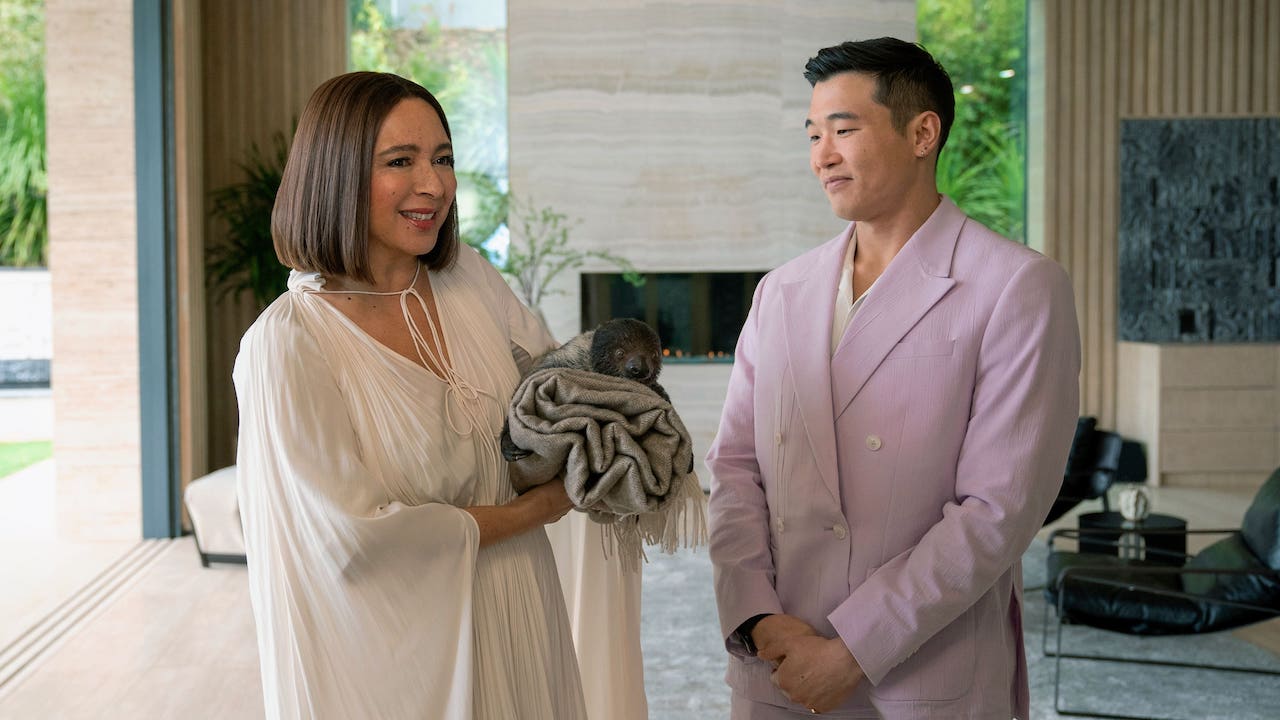
And there was a risk that, with Molly trying the whole “being a good person” schtick, Rudolph would run out of material to work with. But creators Matt Hubbard and Alan Yang have smartly pivoted her character by perpetually putting her up against even sillier and wealthier people, including another recent divorcée, Grace (Ana Gasteyer), who comes with a bacchanalian streak, a pair of vacuous early morning hosts, or a Gen-Z influencer who spouts things like, “Not me getting my first stomach pump of the year!”
Loot’s blatantly hypocritical, since that whiff of anti-capitalist messaging is delivered side-by-side with scenes of a rich woman mindlessly indulging in the trappings of wealth. But the mere fact that this can now be the basis of a deeply inoffensive, populist comedy? That has to count for something.









